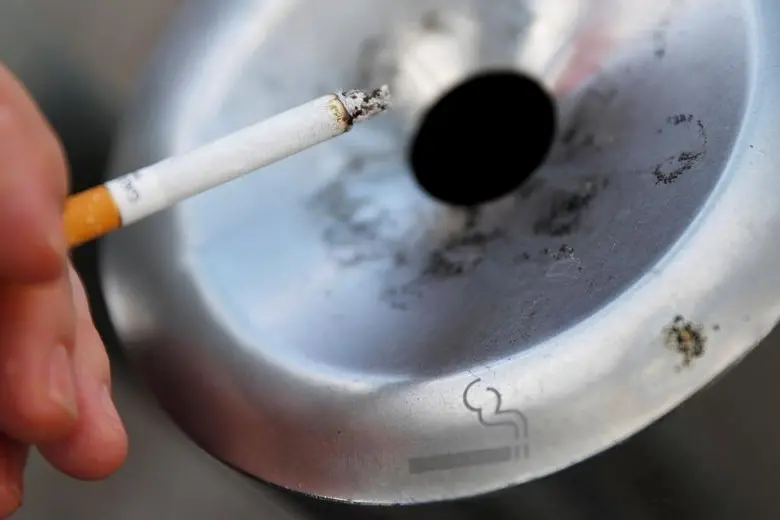PHOTO
By Dona Cherian, Guides Writer
We all know Ramadan does not only mean fasting without food or water, but also stopping smoking and drinking coffee or tea for as long as 15 hours daily. This can become really hard for people who have gotten used to their morning cigarette or for those of us who need a strong espresso shot before the day begins.We spoke to Dr. Mustafa Saif, Specialist Internal Medicine at Aster Hospital and Head of Emergency Department to help us understand what happens when someone suddenly stops smoking or consuming caffeine, and how to cope with the issues that come with such drastic changes.
What is withdrawal?Often associated with illegal drugs or addictive substances, withdrawal or withdrawal symptoms refer to the body’s reaction to a sudden and drastic reduction in intake of the substances. While some of these reactions are manageable, others can affect daily life, mobility and mental health.
Smoking or caffeine addictionSmoking is something people can get easily addicted to and affected by even though the dangers are advertised on the product itself. While chain smoking might be considered more of an addiction than one cigarette a day – even that counts as addiction if you cannot do without it.
Another addiction people have without thinking of it as such is of caffeine. Tea, coffee, sodas – all of these fluids have various levels of caffeine. In small amounts caffeine is harmless and even boosts health in certain situations. However, addiction is usually the case for many people who regularly consume coffee or sodas, and weaning off of it usually brings on withdrawal symptoms.
Nicotine withdrawal during RamadanThe substance in cigarettes that people get addicted to is nicotine. Smokers who stop during Ramadan may experience withdrawal symptoms, 3 to 5 days within stopping, including irritability, anger and difficulty in concentrating. They might also crave smoking so much that they chain smoke after breaking their fast, inhaling a lot of smoke in a very short time and right after a heavy iftar meal.
The urge to binge on carb-heavy foods to avoid smoking is another side effect – leading to weight gain. Apart from the physical withdrawal symptoms that may last for many days, the psychological aspect of the urge to smoke may last longer, leading to relapses.
here is also the myth that traditional shisha is a healthier option. Ramadan is a time when people smoke shisha for hours either socialising or breaking their fast in iftar tents or restaurants. This can be more dangerous than regular smoking.Quitting smoking for Ramadan and onwardsDr. Mustafa Saif feels that Ramadan is the best time to quit smoking for good. “In addition to the fasting aspect, the fact that most people do control smoking for over 14 hours is proof of the fact that they can try and quit for good. Long hours of fasting lead to a drop in the nicotine level in the blood making it much easier for smokers to quit”, he told Gulf News Guides. Here are the tips he has for smokers:
Use nicotine patches during the month of Ramadan as these can control the withdrawal symptoms and help quit the unhealthy habit in time.
Supplement unhealthy food with healthier options like carrots, cucumber and more fiber to avoid over indulging on the carb-heavy iftar favourites.
Start the iftar meal with soup to help feel fuller and avoid carbohydrate-rich food
Take a resolution to quit as nothing is stronger than the will to quit smoking
Caffeine withdrawal during RamadanA lot of people rely on coffee to start their day, they feel alert and fresh once they sip their morning coffee. Dr. Saif says, “Caffeine is the most commonly abused drug which is consumable only in certain amounts.”
Caffeine addicts complain of severe headaches during the initial days of Ramadan until they get used to the routine. They experience withdrawal symptoms like tiredness, lethargy, irritability, lack of concentration, insomnia, anxiety and dizziness.
Coping mechanism
Start practicing early; caffeine addicts must reduce their daily caffeine intake before the onset of Ramadan.
A strong cup of coffee or tea during suhoor can help avoid headaches during the day.
Try and avoid coffee all together for Ramadan, during or after iftar as well, as the excess intake of caffeine leads to dehydration and increases thirst. © Gulf News 2017
We all know Ramadan does not only mean fasting without food or water, but also stopping smoking and drinking coffee or tea for as long as 15 hours daily. This can become really hard for people who have gotten used to their morning cigarette or for those of us who need a strong espresso shot before the day begins.We spoke to Dr. Mustafa Saif, Specialist Internal Medicine at Aster Hospital and Head of Emergency Department to help us understand what happens when someone suddenly stops smoking or consuming caffeine, and how to cope with the issues that come with such drastic changes.
What is withdrawal?Often associated with illegal drugs or addictive substances, withdrawal or withdrawal symptoms refer to the body’s reaction to a sudden and drastic reduction in intake of the substances. While some of these reactions are manageable, others can affect daily life, mobility and mental health.
Smoking or caffeine addictionSmoking is something people can get easily addicted to and affected by even though the dangers are advertised on the product itself. While chain smoking might be considered more of an addiction than one cigarette a day – even that counts as addiction if you cannot do without it.
Another addiction people have without thinking of it as such is of caffeine. Tea, coffee, sodas – all of these fluids have various levels of caffeine. In small amounts caffeine is harmless and even boosts health in certain situations. However, addiction is usually the case for many people who regularly consume coffee or sodas, and weaning off of it usually brings on withdrawal symptoms.
Nicotine withdrawal during RamadanThe substance in cigarettes that people get addicted to is nicotine. Smokers who stop during Ramadan may experience withdrawal symptoms, 3 to 5 days within stopping, including irritability, anger and difficulty in concentrating. They might also crave smoking so much that they chain smoke after breaking their fast, inhaling a lot of smoke in a very short time and right after a heavy iftar meal.
The urge to binge on carb-heavy foods to avoid smoking is another side effect – leading to weight gain. Apart from the physical withdrawal symptoms that may last for many days, the psychological aspect of the urge to smoke may last longer, leading to relapses.
here is also the myth that traditional shisha is a healthier option. Ramadan is a time when people smoke shisha for hours either socialising or breaking their fast in iftar tents or restaurants. This can be more dangerous than regular smoking.Quitting smoking for Ramadan and onwardsDr. Mustafa Saif feels that Ramadan is the best time to quit smoking for good. “In addition to the fasting aspect, the fact that most people do control smoking for over 14 hours is proof of the fact that they can try and quit for good. Long hours of fasting lead to a drop in the nicotine level in the blood making it much easier for smokers to quit”, he told Gulf News Guides. Here are the tips he has for smokers:
Caffeine addicts complain of severe headaches during the initial days of Ramadan until they get used to the routine. They experience withdrawal symptoms like tiredness, lethargy, irritability, lack of concentration, insomnia, anxiety and dizziness.
Coping mechanism





















